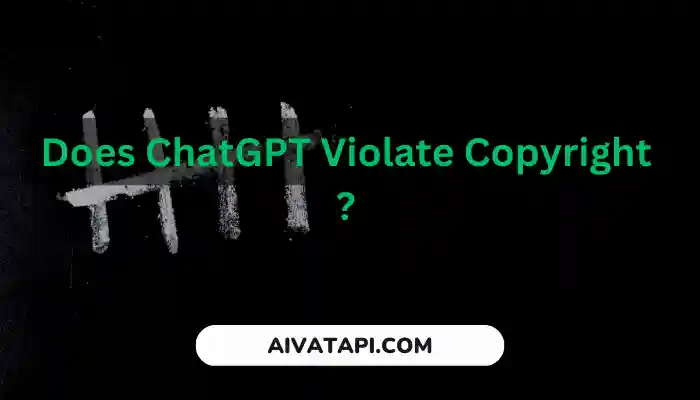Does ChatGPT Violate Copyright ? :- The globe has been swept up in the innovative AI language model known as ChatGPT. It is a powerful tool for both organisations and individuals since it can produce responses that resemble those of humans to a wide range of inquiries. Yet, as great power also comes great responsibility, some have questioned if ChatGPT infringes on copyright regulations. We shall examine the murky issues of ChatGPT and copyright infringement in this essay.
What is ChatGPT?
Understanding ChatGPT is crucial before getting into the subject of copyright infringement. The ChatGPT AI language model, created by OpenAI, employs deep learning methods to produce responses in natural language in response to user input. It is extremely adaptable and able to respond to a variety of questions because it was trained on a huge corpus of text data. [Does ChatGPT Violate Copyright ?]
Understanding Copyright Law
The field of copyright law is intricate and frequently perplexing. Fundamentally, it safeguards creators’ intellectual property rights by giving them sole control over their works. This includes the freedom to use, share, and exhibit their creative works. A vast variety of creative works, including books, music, films, and software, are covered under copyright law. [Does ChatGPT Violate Copyright ?]
Does ChatGPT Violate Copyright Law?
The answer to this question is not clear cut. On the one hand, ChatGPT does not reproduce or distribute copyrighted material directly. Instead, it generates new content based on the input it receives. However, the process of training ChatGPT requires access to a vast amount of text data, some of which may be copyrighted. This raises questions about whether ChatGPT infringes on the exclusive rights of copyright holders.
Fair Use Doctrine
Intent is another important component that affects whether ChatGPT infringes copyright laws. It would probably be regarded as copyright infringement if ChatGPT’s creators intentionally used protected content without authorization or payment. However, this might not be the case if they can show that their use of copyrighted information was incidental to the creation of the model and that they took reasonable precautions to avoid violating the exclusive rights of copyright holders.
The Role of Intent
Intent is another important component that affects whether ChatGPT infringes copyright laws. It would probably be regarded as copyright infringement if ChatGPT’s creators intentionally used protected content without authorization or payment. However, this might not be the case if they can show that their use of copyrighted information was incidental to the creation of the model and that they took reasonable precautions to avoid violating the exclusive rights of copyright holders.
Mitigating the Risks of Copyright Infringement
Regardless of whether ChatGPT technically violates copyright law, it’s essential for businesses and individuals who use the model to take steps to mitigate the risks of copyright infringement. One way to do this is to ensure that any data used to train the model is either in the public domain or obtained through legal means. Another is to obtain permission from copyright holders before using their material in any way.
also read :- Can I Use Chat GPT Without an Account?
Conclusion
Conclusion: In conclusion, the issue of whether ChatGPT violates copyright law is a complex one with no easy answers. While the model itself does not reproduce or distribute copyrighted material directly, its training process may require access to copyrighted works. Whether this constitutes copyright infringement depends on several factors, including the purpose of the use, the amount and substantiality of the material used, and the intent behind the use. Ultimately, it is up to businesses and individuals who use ChatGPT to take steps to mitigate the risks of copyright infringement and ensure that they are in compliance with all relevant laws and regulations.



![Image Analysis with Chat GPT-4: Image Interpretation Unveiled! [UPDATED]](https://aivatapi.com/wp-content/uploads/2023/10/Can-Chat-GPT-Read-Questions-From-Images-4-300x171.webp)
![Image Analysis with ChatGPT: Image Interpretation Unveiled! [UPDATED]](https://aivatapi.com/wp-content/uploads/2023/10/Can-Chat-GPT-Read-Questions-From-Images-3-300x171.webp)